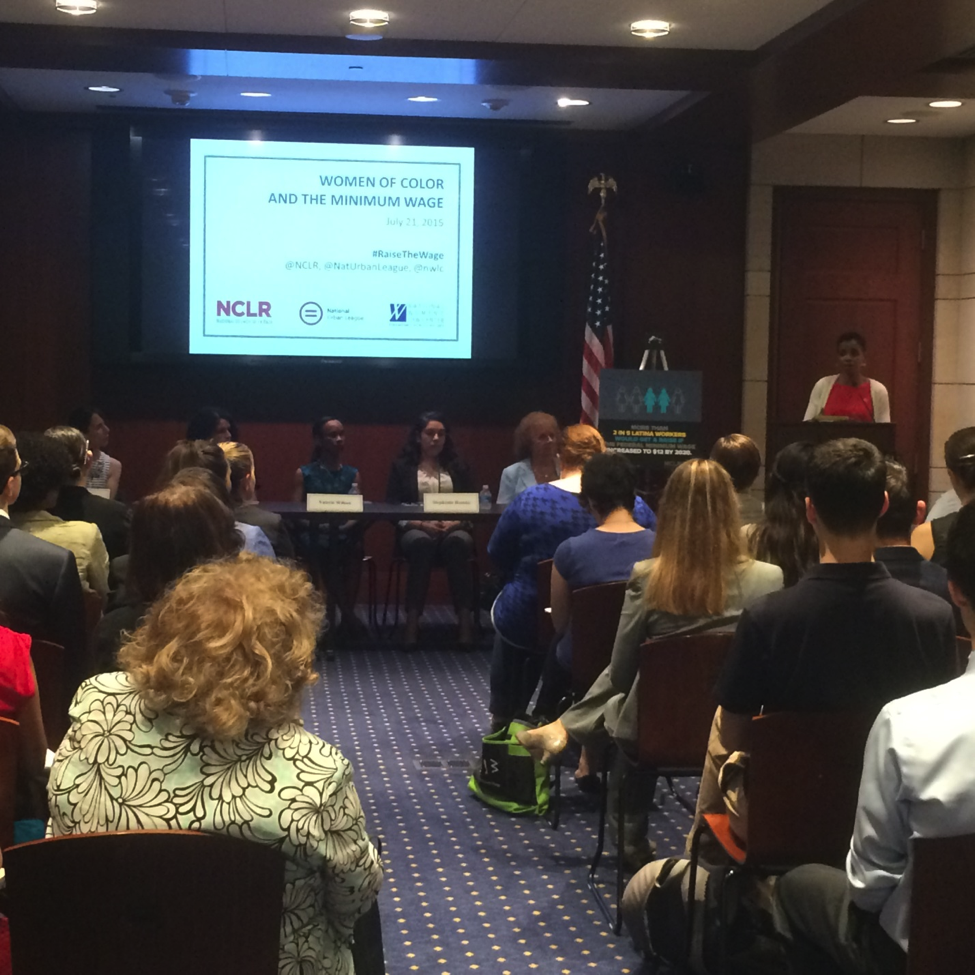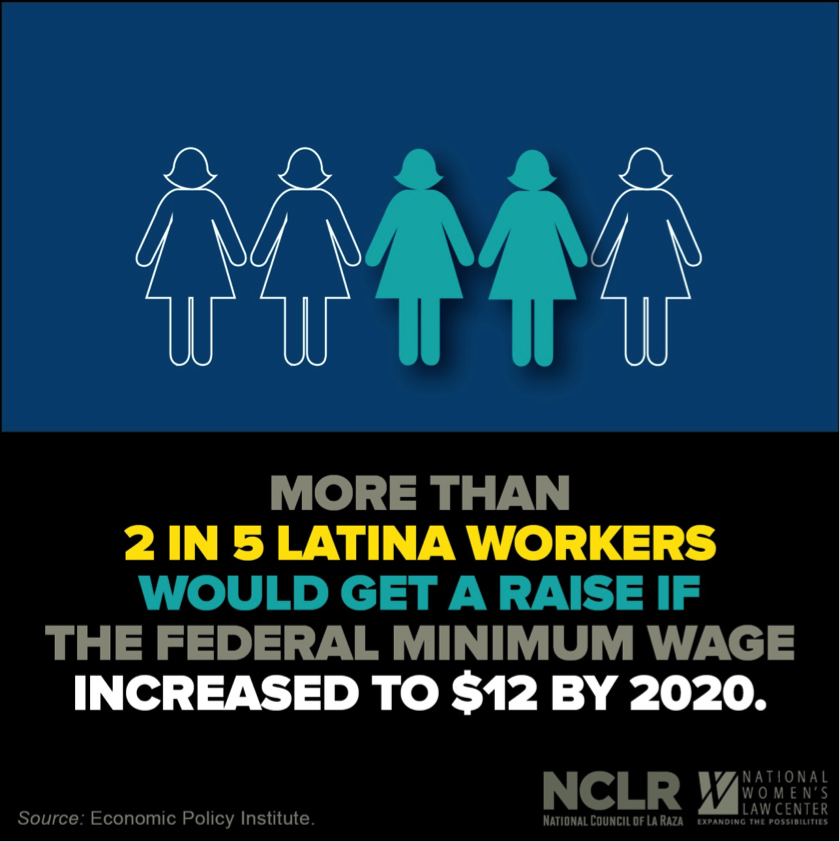America Needs a Raise
By Stephanie Román, Economic Policy Analyst, NCLR
The federal minimum wage has been stuck at $7.25 since 2009, while the cost of most everything has increased since then. Worse, the minimum wage for tipped workers has stayed frozen at $2.13 per hour for more than 20 years. Yes, you read that correctly, 20 years. It’s clearly time to raise the minimum wage. The “Raise the Wage Act” sponsored by Senator Patty Murray (D–WA) and Representative Bobby Scott (D–VA) would do just that by raising the minimum wage to $12 by 2020 and gradually bringing the tipped minimum up to parity with the minimum wage.
This badly outdated minimum wage heavily affects Latinos, who are concentrated in low-wage jobs. Latinos are 16% of the labor force, yet represent nearly one-quarter (8.5 million) of those who would benefit from raising the minimum wage. As a result of low wages, many hardworking Latino families struggle to cover the rising cost of living. Raising my voice to raise the minimum wage is important to me because the financial struggles of low-wage workers are the struggles my parents and community members fa ce.
ce.
Keep up with the latest from UnidosUS
Sign up for the weekly UnidosUS Action Network newsletter delivered every Thursday.
Last Tuesday, I had the opportunity to talk about what raising the minimum wage means to our community at a congressional briefing at the U.S. Capitol. Congresswoman Donna Edwards (D–MD) also spoke and stressed the importance of raising the minimum wage, particularly for women of color. At the briefing, I emphasized the critical role raising the minimum wage has in helping to lift 4.2 million hard-working Latina women, our mothers, sisters, and wives, out of poverty.
Too many Latinas are living in poverty. In 2013, almost one-quarter of all Latinas were in poverty. Under the proposed $12.00 increase by 2020, nearly half (43%) of all working Latinas would get a raise. Higher wages are especially important to hardworking mothers. Nearly half (1.8 million) of all working Latinas who would get a boost in pay are mothers, including almost 900,000 single mothers. A minimum wage increase for Latina working moms is critical because almost half of Latina single-mother families lived in poverty in 2013. Hard-working Latina moms earning poverty wages shouldn’t have to decide between paying the bills and putting food on the table for their kids.
Latinas are not alone in facing these economic hardships. Raising the minimum wage is a critical issue for the entire Latino community. A vast majority (78%) of Latinos polled supported an increased minimum wage in 2014, according to an election eve poll. Raising the wage is a Latino voter priority. Our community continues to feel the economic strains of the recession with high rates of poverty and higher levels of unemployment than the national average, even as they have the highest rate of labor force participation among all groups.
Raising the minimum wage is a critical poverty-fighting tool we support because it will mean increased economic security and greater opportunities for Latino workers, our families, and our communities to thrive.

